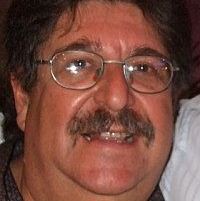
Israel

European Maccabi Games returns to Berlin
JACK MILNER
Jewish involvement in organised sport has a troubled history in Europe. Almost all Jews were banned from the German delegation at the 1936 Olympic Games, sparking protests worldwide by anti-fascist demonstrators. In the 1972 Munich Olympics, 11 Jewish members of the Israeli Olympic delegation were taken hostage and eventually murdered by the Palestinian group Black September.
In fact, anti-Semitism in European sport can be traced as far back as the banning of Jews in some Austrian sporting events in 1886.
Consequently, European Jews sought an alternative source of competitive sport, free of systematic discrimination and anti-Jewish sentiment.
The European Maccabi Games are the Jewish European sporting championships, held every four years in a different European city. It is an offshoot of the World Maccabiah Games, which take place in Israel every four years. Most nations require participants to have at least one Jewish parent or grandparent to qualify to compete.
The choice of Berlin as this year’s host city is particularly significant. It reflects a remarkable turn for the nation once at the centre of the worst Holocaust in history.
Once a place of discrimination and racial hatred, the setting’s significance has not been lost on Daniel Collins, head of the delegation for Great Britain at this summer’s Games, who told The Guardian: “What unites all 2 500 participants from the 36 represented nations is that on all our uniforms and playing kits will be a Star of David.
“I doubt any games anywhere will be as emotionally charged as this one; thousands of Jewish people parading in the Olympic stadium, which houses such meaning, not only to the world’s Jewish community, but to the world’s sporting community.”
As anti-Semitism continues across parts of Europe, organisers hope the Games will stand as a testament to the enduring richness of Europe’s Jewish community.




